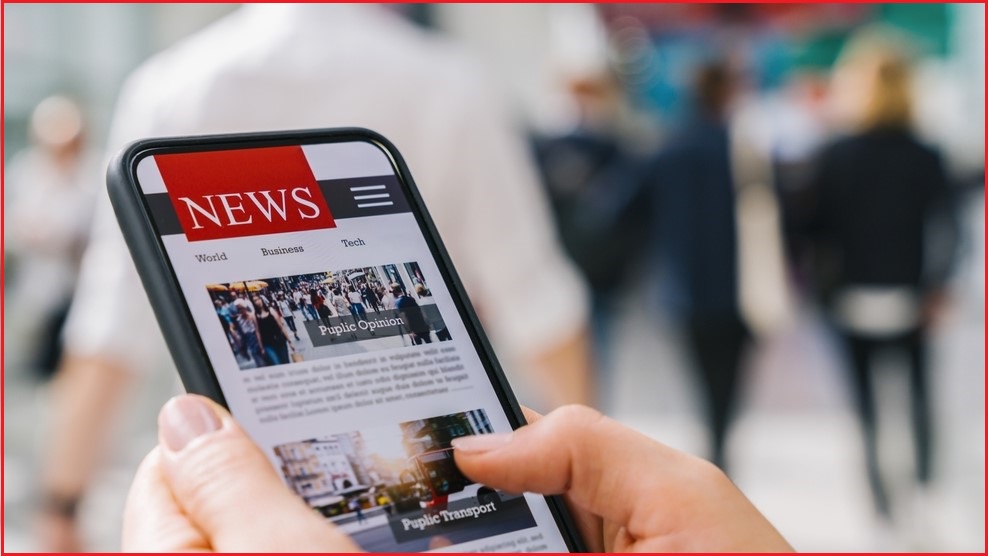Tech giants such as Meta, TikTok and Google will be forced to make a revenue-sharing deal with Australian media companies or pay a significant sum of money, under a federal government plan to beef up the Morrison-era media bargaining code.
Assistant Treasurer Stephen Jones and Communications Minister Michelle Rowland unveiled the plan on Thursday, which will force big tech firms such as Meta to negotiate with local news companies on revenue-sharing deals or face major financial “charges”.
These fines will apply even if the platforms remove news content entirely in Australia, which Meta has done in Canada – a key flaw in the existing news media bargaining code.
The changes to the News Media Bargaining Code will introduce a News Bargaining Incentive, which will “encourage digital platforms to enter into or renew commercial deals with news publishers”.
This will involve a charge and offset mechanisms, with tech firms that do not sign commercial deals with publishers to pay a set “charge”, and those that do to be able to offset that charge.
Jones said this charge will cost more than if a tech platform voluntarily signs content deals with media firms and will still apply even if a social media company removes news from their platforms entirely.
“This approach strengthens the existing code by addressing loopholes that could see platforms circumvent their responsibility to pay,” Jones told the media on Thursday.
The incentive will apply to tech platforms with Australian-sourced revenue of at least $250 million, which encompasses the likes of Meta, TikTok and Google, but not the Elon Musk-run X.
Pay up
The Australian government has been attempting to force big tech firms such as Meta and Google to pay for the use of Australian news content on their platforms.
The previous Morrison government introduced the News Media Bargaining Code in 2021, which forced designated platforms to enter into arbitration on revenue-sharing deals with media firms or face a fine of up to 10 per cent of their Australian revenue.
Meta and Google entered into a series of content sharing deals in the wake of the passing of this code, and no company has been designated under it.
Crucially, the fines under the code do not apply if a social media platform removes news content in Australia entirely.
Earlier this year, Meta announced that it would not be renewing any of its financial deals with Australian media companies when they came to an end midway through this year, representing a loss of about $70 million annually for the media industry.
Jones said the government will go ahead with this plan no matter what response it garners from the tech giants.
“We would take very, very dimly any decision by any platform to respond to this very reasonable, well thought through, deeply consulted initiative with any of those sort of retributive actions,” he said.
Revamping the bargaining code
There have been widespread calls to designate Meta under the bargaining code to force it to negotiate with the media companies.
But Meta was accused of blackmailing Parliament after the company refused to rule out removing news content in Australia entirely if this were to happen.
This was identified by a parliamentary committee as the “fundamental problem” with the existing code.
The federal government has rolled out a number of new policies targeting the power and influence of big tech firms in Australia, particularly social media platforms.
Last month, the Australian Parliament passed a world-first social media age ban for those aged under 16.
The ban, which will come into effect in 12 months, will require Australian social media users to verify their ages on certain digital platforms, sparking significant debate over privacy, digital media and child safety.
The Labor government also last month announced plans to legislate a digital duty of care for social media companies which will put the onus on them to proactively keep their users safe.
This will require the big tech firms to take “reasonable steps” to prevent foreseeable harm occurring on their sites, such as through conducting risk assessments and risk mitigations and implementing safety-by-design principles.
Meta outage
Meta experienced widespread outages across its Facebook, Facebook Messenger, Instagram and WhatsApp platforms around the world on Thursday.
Meta acknowledged the tech problems, saying it was aware of a “technical issue” impacting “some users’ ability” to access the sites.
“We’re working to get things back to normal as quickly as possible and apologise for any inconvenience,” Meta posted on X on Thursday morning.










